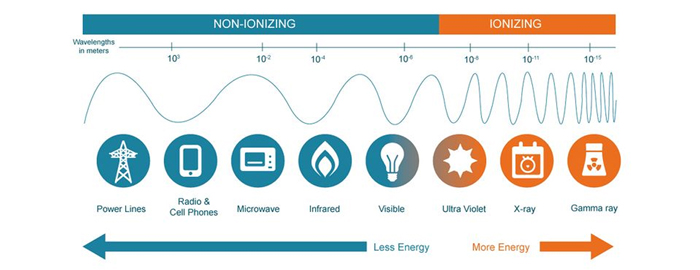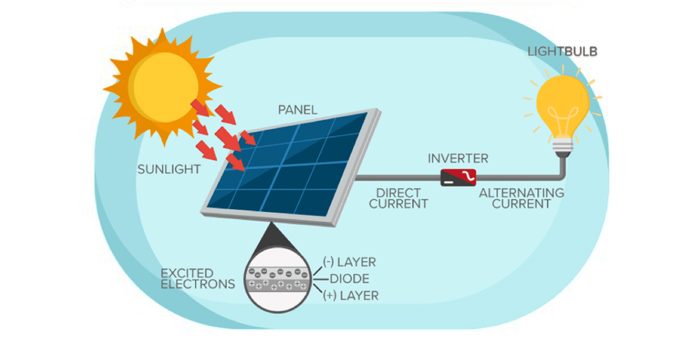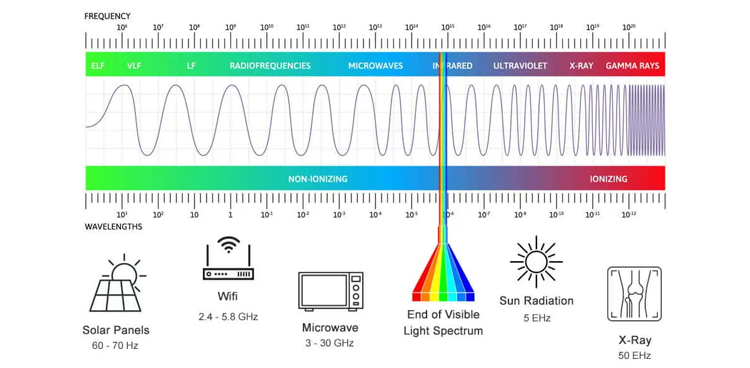Contents:
In recent years, solar energy has gained widespread popularity as a clean, renewable alternative to fossil fuels. As more homeowners, businesses, and governments invest in solar technology, questions surrounding its safety and environmental impact naturally arise. One such concern is whether solar panels emit radiation and, if so, whether that radiation poses any health risks. In this article, we will explore the science behind solar panels, distinguish between different types of radiation, and address the most common concerns and misconceptions about solar panel emissions.

Understanding Radiation: Ionizing vs. Non-Ionizing
Before diving into whether solar panels emit radiation, it is essential to understand what radiation is. In general, radiation refers to the emission of energy as electromagnetic waves or subatomic particles. However, not all radiation is created equal.
Radiation can be broadly classified into two categories:
-
Ionizing Radiation: This type of radiation has enough energy to remove tightly bound electrons from atoms, which can potentially cause cellular damage in living organisms. Examples include gamma rays, X-rays, and high-energy ultraviolet (UV) radiation.
-
Non-Ionizing Radiation: This type has lower energy and cannot ionize atoms. It includes radio waves, microwaves, infrared radiation, visible light, and low-energy ultraviolet rays. Non-ionizing radiation is generally considered safe at typical exposure levels.
With these definitions in mind, the question becomes: What kind of radiation do solar panels produce, and in what quantities?

How Do Solar Panels Work?
To assess whether solar panels emit radiation, it’s helpful to understand their basic operation.
Solar panels—also known as photovoltaic (PV) panels—convert sunlight into electricity using the photovoltaic effect. Each panel is made up of many solar cells, typically constructed from semiconducting materials like silicon. When sunlight hits a solar cell, photons in the light knock electrons loose from atoms in the semiconductor. This movement of electrons generates a flow of electricity.
The components involved in this process include:
-
Photovoltaic Cells: These absorb sunlight and generate direct current (DC) electricity.
-
Inverter: This device converts DC electricity into alternating current (AC), which is used by most household appliances.
-
Wiring and Electrical Components: These transfer electricity from the panels to the building’s electrical system or the power grid.
So, where does radiation come into play?

Do Solar Panels Emit Radiation?
1. Electromagnetic Radiation from the Sun
By their very nature, solar panels absorb solar radiation—that is, electromagnetic energy from the sun, including visible light, infrared (heat), and a small portion of ultraviolet radiation. However, this radiation originates from the sun, not from the panels themselves.
Solar panels are receivers, not sources, of solar radiation. They do not create solar radiation; they merely convert it into electricity.
2. Electromagnetic Fields (EMFs)
While the panels themselves do not emit harmful radiation, the electrical components of a solar power system can generate low-frequency electromagnetic fields (EMFs). These fields are a type of non-ionizing radiation, similar to what is emitted by household appliances, Wi-Fi routers, mobile phones, and power lines.
Most concern around EMFs comes from high-voltage equipment or long-term, high-level exposure. In solar systems, EMFs are generally minimal and well within the safety limits established by international health organizations like the World Health Organization (WHO) and the International Commission on Non-Ionizing Radiation Protection (ICNIRP).
3. Radiofrequency (RF) Emissions
Some solar power systems may include components that emit low-level radiofrequency radiation, such as inverters with wireless communication capabilities for performance monitoring. These RF emissions are also non-ionizing and typically far below regulatory safety thresholds.
In fact, the levels of RF radiation emitted by solar systems are often lower than those from smartphones or laptops. Furthermore, exposure drops rapidly with distance, meaning that anyone standing a few feet away is unlikely to receive measurable exposure.
Health and Safety Considerations
Given that solar panels and their components emit only non-ionizing radiation, which is not strong enough to alter DNA or cells, there is no credible scientific evidence to suggest that solar panels pose a health risk due to radiation.
Several global health agencies, including:
-
The World Health Organization (WHO)
-
The U.S. Environmental Protection Agency (EPA)
-
The Centers for Disease Control and Prevention (CDC)
…have all found no conclusive evidence linking EMF exposure from solar panels or related infrastructure to any adverse health effects.
It’s also worth noting that solar farms and residential systems are subject to safety standards and electromagnetic compatibility regulations, ensuring that emissions remain within safe levels.
Environmental Impact of Radiation from Solar Panels
When discussing radiation, people often think of nuclear energy or radioactive materials, which can have significant environmental consequences. Solar panels, in contrast, do not involve radioactive substances and do not release hazardous materials during operation.
In fact, solar panels reduce radiation exposure indirectly by decreasing our reliance on fossil fuels and nuclear power. For instance:
By replacing these sources with solar energy, we lower the total environmental radiation burden.
Addressing Common Myths and Misconceptions
Myth 1: Solar Panels Emit Harmful Radiation That Causes Cancer
There is no scientific basis for this claim. Solar panels emit only non-ionizing radiation, which does not cause cancer. This myth likely stems from confusion with ionizing radiation or from general fears about EMFs.
Myth 2: Solar Panels Attract More Radiation to Your Home
Solar panels do not attract additional radiation. They simply absorb the sunlight that would otherwise strike your roof. In fact, because panels absorb and convert solar radiation into electricity, they may actually reduce the amount of reflected heat and light around your home.
Myth 3: Living Near a Solar Farm Is Dangerous
Multiple studies have evaluated the safety of living near solar farms, and none have found any increase in health risks from radiation. EMF exposure near solar farms is typically no greater than near everyday household electronics.
Conclusion
Solar panels do not emit harmful radiation. While they do produce very low levels of non-ionizing electromagnetic fields due to electrical components like inverters, these emissions are well within international safety guidelines and comparable to—or even less than—those from common household devices.
In reality, solar energy is not only one of the safest forms of power generation but also one of the most environmentally friendly. By reducing reliance on polluting and radioactive sources of energy, solar panels contribute to a cleaner, safer world—with no meaningful radiation risk.
So if you're considering switching to solar, you can rest assured: solar panels are safe, clean, and radiation-free in every way that matters.
FAQs
1. Do solar panels emit harmful radiation?
No, solar panels do not emit harmful radiation. They only produce low-level, non-ionizing electromagnetic fields, which are considered safe by global health organizations.
2. Can living near a solar farm increase my radiation exposure?
No, living near a solar farm does not significantly increase radiation exposure. The electromagnetic fields from solar equipment are minimal and well within safety limits.
3. Is the radiation from solar panels similar to that from mobile phones or Wi-Fi?
Yes, the type of radiation is similar—non-ionizing electromagnetic radiation—but solar panels emit much lower levels compared to devices like smartphones or Wi-Fi routers.
4. Do inverters in solar systems contribute to radiation?
Yes, inverters can emit low-frequency electromagnetic fields, but these are very weak and not harmful. Proper installation further minimizes any exposure.
5. Are there regulations to ensure radiation from solar systems is safe?
Yes, solar power systems must meet strict safety and electromagnetic compatibility standards to ensure they operate safely without posing health risks.








